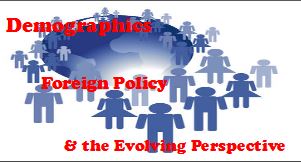The millennials (1980-1996), the Generation X (1965-1979),
the Baby Boomers (1946 – 1964), the Traditionalists (1900-1945) – Foot in his
book Boom, Bust, Eco, called the Millennials – Ecos, so the name changes from
one futurist to the other, but the facts are the same, we are now three
generations away from the people who fought WW2 and lived through the
depression. The Canadian identity-building apparatus has created a culture largely based on being other than
“American” and on “diversity” along with other dribs and drabs. The societal
“eye of the tiger” that had Canada provision 1 million people and build the
third-largest navy in the world to put down tyranny in WW2 seems absent now. I
believe we need to get it back; this is in no way a call for exuberance in the
pursuit of war, but rather a societal willingness to “throw down the gloves”.
I have tremendous affection and respect for the
Millennials & Generation X, I am a late boomer so my life experience resembles Gen Xers more than Boomers. The Millennials are idealists, this is a
good thing – the willingness to pursue the best of humanity is admirable. The
Challenge is that the world is evolving into a more complex place, multi-polar
and dangerous. Boomers and, Gen X to a lesser degree, had their worldview
forged by the Cold War – the world was largely bipolar and everyone else took
upsides. The Millennials had their worldview shaped by euphoria generated by
the fall of the wall and the miss-framing of the most recent middle-east confrontations.
There is less of a willingness to support military action;
this “anti-war” sentiment could be even more deadly than a more hawkish stance
on foreign policy. We need to remember the cost of the hesitation of Roosevelt
and Chamberlin in WW2, weak-kneed policy generated an emboldened Hitler, who
then took advantage of hesitation to build massive forces, with the net result
being more people dead than if the West had been more aggressive. The modern
version of this was the premature removal of troops from Iraq and scaling back
in Afghanistan, we are paying the price for political pandering now, as the
vacuum left by western withdrawal in the Middle East is being filled by ISIS
& the like. It is grand to want “world peace”, the peace that made life
grand for the Boomers, Gen Xers and Millennials was earned by fighting and winning;
that is the paradox of peace – it must be fought for. Simply putting other
nations’ aggression on ignore or failing to respond to emerging threats is the
road to disaster.
The challenge is that the affects of poor policy are
buffered from the decision-makers, the voters. Most challenging, the political
process confounds a clear and concise message to the public – this is a
particularly damaging externality of our political system. The challenge in the Middle East is
generations in the making, it will take generations to remedy and we have
governments attempting to generate outcomes inside election cycles. There are
violent, aggressive state entities at play in the world, unless we confront
them, by force if necessary, and force them into the world community, they will
gain mass until they can threaten or take away our way of life. Let history be
your teacher, it keeps playing out with violent changes in power; the only time
there is sustained peace is when there is a clear hegemon – the preservation
and enhancement of a hegemon requires societal consensus and clarity in policy.
The west’s hegemony is U.S. lead, and they are conflicted both generationally
and politically; beyond that, other NATO players are fractured in their preferred
approaches – internally and internationally.
There has been too little effort between western allies to
solidify a long-term policy by consensus, when we were in a bipolar
circumstance with the extreme threats we acted more or less in solidarity. Given the
“pre WW1” circumstance now, multipolar and dangerously unstable – but with far
less resolution – the world's security is insidiously slipping away.
There needs to be strong leadership in clarifying the
threats to our way of life and communicating them to people. People having been
isolated from serious confrontation in their own space for generations are losing
touch with the realities of power and what it means to them in their daily
lives. It is important that people have a clear assessment of threats and
outcomes, or apathy will rule until we all find ourselves stepping off a cliff,
like so many Lemmings before. This is an issue that requires long-term policy
in the face of a changing circumstance, this is a place where political action can
direct policy, however, political action should be withdrawn from policy actuation – the debate needs to
be had and consensus achieved before
crisis hits.


No comments:
Post a Comment